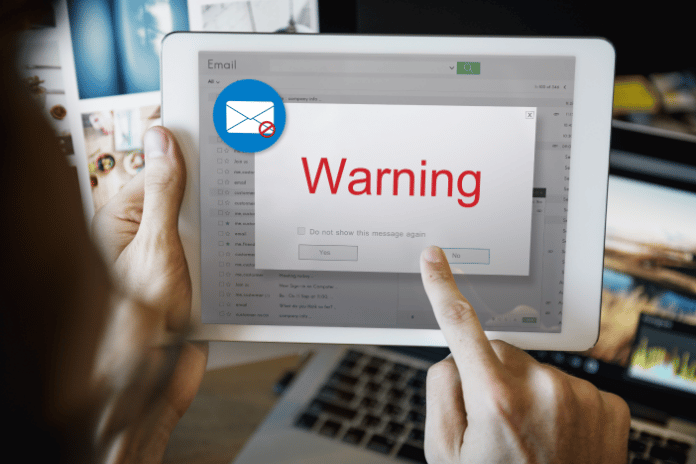Black Friday is a time when a lot of people go shopping for deals. It’s also a time when cybercriminals take advantage of unsuspecting shoppers. They send out phishing emails that look like they’re from legitimate companies but are actually scams designed to steal your personal information. Knowing what those common phishing scams are can prevent falling into a hard situation. Here you will learn how to avoid being a victim of email phishing scams on Black Friday. We’ll also provide tips on how to protect yourself from these types of scams year-round!
Email-Phishing Scams: What is it?
Email phishing is when you receive an email from a scammer who’s pretending to be someone else, like a legitimate organization or even a friend or family member. They usually ask for money or try to steal your personal information like credit card numbers, passwords, or sensitive information. Once you click on a link in the email, it would usually lead you to a fake website or install malware on your computer.
Common Black Friday Email-Phishing Scams
Black Friday is the perfect season for businesses to increase sales and for customers to buy great deals. During this time of the year, it’s very common to start receiving lots of emails from your favorite brands announcing the discounts they will offer during Black Friday. But, during this season, you must be very cautious because not all of these emails are going to be real. Sadly, hackers take advantage of the beginning of the holidays to send emails that are apparently legitimate with phishing attacks and steal money and personal information.
Some of the most common email-phishing scams during black Friday are the following:
Problem with your order:
When you’re online shopping during Black Friday, you likely forget what all your orders were. Hackers are aware of the situation and take advantage of this. In this type of scam, you will get an email telling you there’s an issue with an item you ordered. Oftentimes, scammers will not mention what the item is in your order or give you a confirmation number. They’ll just tell you to click on the provided link to find out more information.
In this type of scam, hackers also use the tactic to alarm someone with an email warning about a significant amount of money charged on their card and take advantage of their emotional reaction to get them to click links. Even though the person who got the email knows that they didn’t order that item.
However, suppose you are unsure that someone is using your card to order things without your permission. In that case, you should go directly to the retailer’s website and check the purchase history, contact customer service or check your bank account to confirm the purchase is real.
Fake shopping websites
Scammers are excellent at what they do, and their websites appear to be very genuine. However, there are a few minor details that allow you to identify a fake website, but it’s not always easy. During Black Friday, it’s very likely that scammers send emails with a link to visit a website with incredible deals from your favorite brands. When you click on that link, you think you are on the website of your favorite retailer, but in fact, you are on a cloned website. When you make a purchase on this site, the scammer steals your credit card information.
To avoid making purchases on fake websites, bookmark the legitimate versions of your favorite shopping, and don’t visit the websites by clicking on an email, text, or social media link.
Fake delivery email
Receiving an email from your delivery company during the Black Friday season is something you should be cautious about. In these phishing emails, hackers mention a problem with delivery and provide a link so you can solve the problem. If you click on this link, they will ask you to provide personal information or a credit card number. Something very usual in these types of scams is that hackers don’t provide any specific details regarding what the item is or where it is coming from. If you wonder if there is a real problem with some orders, you can track your purchases and shipments on your own by visiting the delivery company’s website.
How to Identify Email Phishing Attacks
Even though identifying an email phishing attack is not easy, there are a few things to can do to prevent becoming a victim:
- Don’t click on links from emails that suggest an urgent reason to click. For example, suspicious activity, a problem with your payment, a fake invoice, refunds, or a delivery problem.
- Don’t trust emails with generic greetings. Real brands will always use your name, also, check for grammatical or spelling errors, this is very common in scams.
- Examine the URL or domain names used in the email. Even though it seems to be legit at simple sight, most scammers change one letter or use small details to trick people. Also, look for an extra subdomain.
- If you receive an email with a low-resolution logo, it’s a sign that the person who sent the email might be a scammer.
Bottom line
Email phishing scams are becoming more and more sophisticated, making them harder to identify. However, if you are aware of the tactics scammers use, you can protect yourself from these attacks. During the Black Friday season, be extra careful when shopping online, and don’t click on any links from emails or social media posts. Also, take a few minutes to examine the website before making any purchase.

